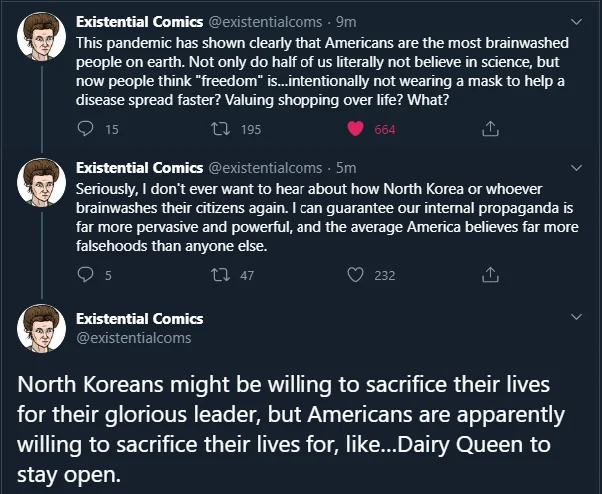this post was submitted on 22 Jan 2024
234 points (98.3% liked)
GenZedong
4302 readers
60 users here now
This is a Dengist community in favor of Bashar al-Assad with no information that can lead to the arrest of Hillary Clinton, our fellow liberal and queen. This community is not ironic. We are Marxists-Leninists.
This community is for posts about Marxism and geopolitics (including shitposts to some extent). Serious posts can be posted here or in /c/GenZhou. Reactionary or ultra-leftist cringe posts belong in /c/shitreactionariessay or /c/shitultrassay respectively.
We have a Matrix homeserver and a Matrix space. See this thread for more information. If you believe the server may be down, check the status on status.elara.ws.
Rules:
- No bigotry, anti-communism, pro-imperialism or ultra-leftism (anti-AES)
- We support indigenous liberation as the primary contradiction in settler colonies like the US, Canada, Australia, New Zealand and Israel
- If you post an archived link (excluding archive.org), include the URL of the original article as well
- Unless it's an obvious shitpost, include relevant sources
- For articles behind paywalls, try to include the text in the post
- Mark all posts containing NSFW images as NSFW (including things like Nazi imagery)
founded 4 years ago
MODERATORS
you are viewing a single comment's thread
view the rest of the comments
view the rest of the comments

It would be cool if someone who knew Korean could confirm this for us, but in my opinion I don’t think it’s that strange to call people “dear” in general. Didn’t FDR refer to Stalin with “my dear” in his letters to him? I don’t find that weird. Also it could very well be a cultural thing too, some are just “warmer” than others. I mean, this example isn’t the same, but I thought it was hilarious when Hakim called Putin “habibi.” Maybe it’s just me, though, I like sweetness.
The particular phrasing that gets thrown around is extremely cultish in English (dear leader, glorious leader, supreme leader, etc.) which is why westerners keep repeating it. It doesn't come off as a term of endearment, more like subservience. I dunno what Koreans say in Korean and whether it carries the same connotations though (probably not).
Yeah that makes sense. In my political science classes when Authoritarian governments are brought up the term “supreme leader” is used a lot so maybe I’m used to it. Then again it very well might be a language barrier with tonal contexts (how they say it). I can’t recall a time when a Western leader was ever referred to as “supreme leader”…
Yeah, Aria mentioned how "prime minister" is the same thing but with neutral connotations. It's another case of using good words to describe ourselves and bad words to antagonize our targets.